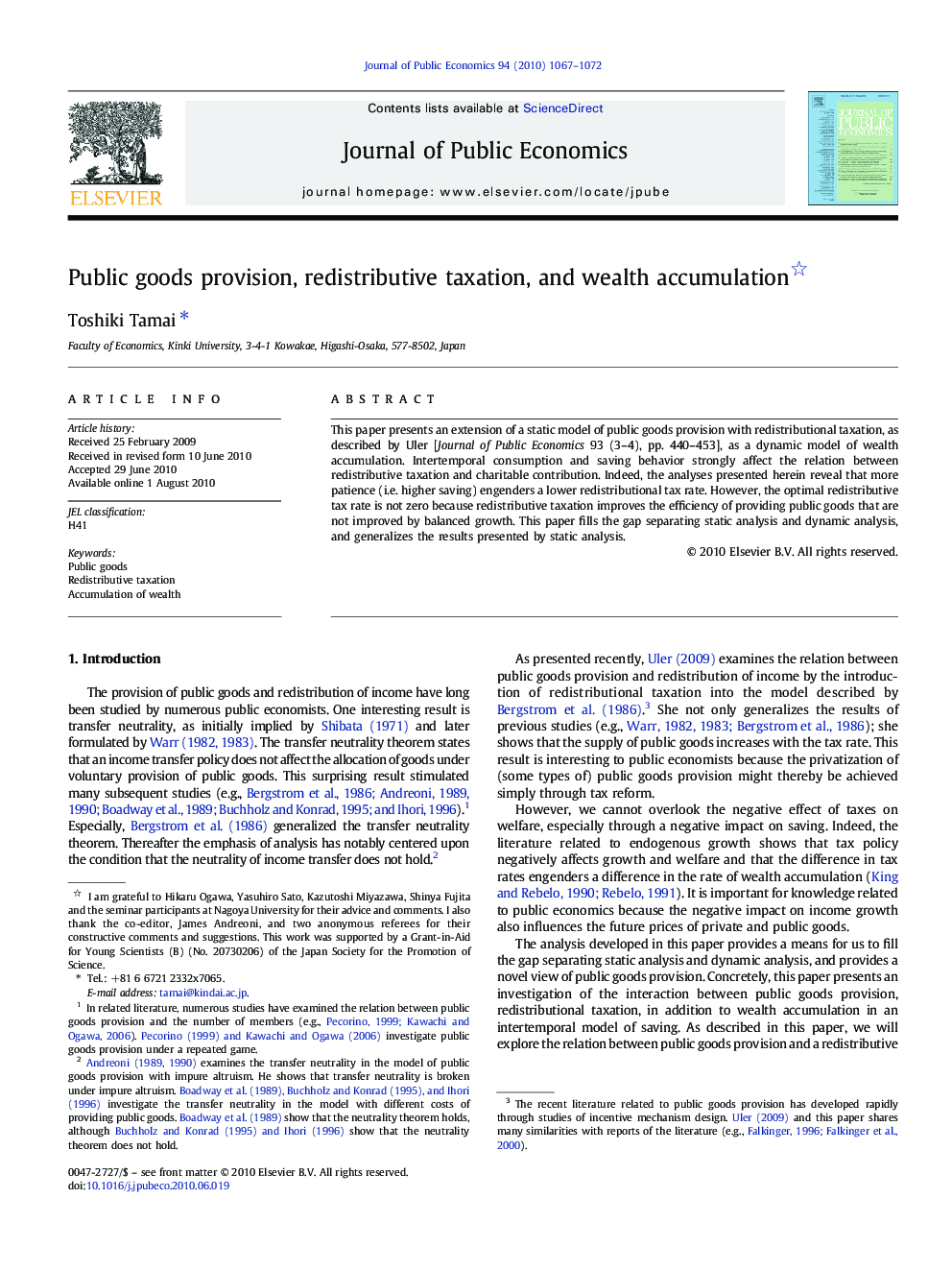| Article ID | Journal | Published Year | Pages | File Type |
|---|---|---|---|---|
| 969821 | Journal of Public Economics | 2010 | 6 Pages |
This paper presents an extension of a static model of public goods provision with redistributional taxation, as described by Uler [Journal of Public Economics 93 (3–4), pp. 440–453], as a dynamic model of wealth accumulation. Intertemporal consumption and saving behavior strongly affect the relation between redistributive taxation and charitable contribution. Indeed, the analyses presented herein reveal that more patience (i.e. higher saving) engenders a lower redistributional tax rate. However, the optimal redistributive tax rate is not zero because redistributive taxation improves the efficiency of providing public goods that are not improved by balanced growth. This paper fills the gap separating static analysis and dynamic analysis, and generalizes the results presented by static analysis.
